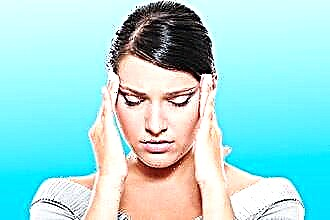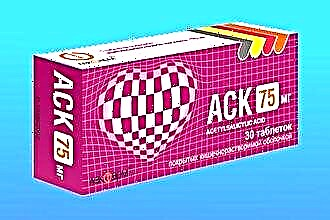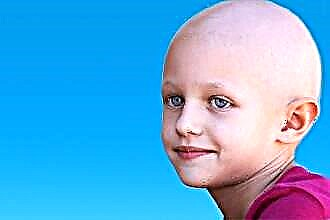During the cessation of cardiac activity, the exchange of sodium, potassium and calcium ions is disturbed. A large number of proteases and free radicals are released, which leads to cell damage and a sharp decrease in the pumping function of the organ. Peripheral organs do not receive oxygen and cannot perform their functions. Multiple organ failure sets in. However, the process is still reversible, and before biological death occurs, it is possible to return a person to life.
What is the reason for cardiac arrest?
There are many different conditions that can cause cardiac arrest. These include both organic pathology of the circulatory system and the effect of external factors on the body.
The main reasons are:
- Ventricular fibrillation is a sudden violation of the heart rhythm, which never stops on its own and leads to the sudden death of a person.
- Asystole is the absence of any cardiac activity.
- Massive pulmonary embolism occurs when a large part of the vessel is blocked. A person instantly suffocates, turns blue, blood flow to the heart is disrupted.
- Cardiac tamponade occurs after operations, with injuries, pericarditis. Liquid accumulates between the leaves of the heart bag and squeezes the organ, preventing it from working fully.
- Myocardial infarction can lead to a number of severe complications due to the death of a portion of the heart muscle. The organ loses its contractile ability, which threatens to stop the heartbeat.
- Arrhythmias such as ventricular tachycardia (VT), atrial fibrillation or atrial flutter are all based on chaotic contraction of certain areas, as a result of which the ventricles inadequately eject blood into the bloodstream, and an acute lack of oxygen occurs.
- Brugada syndrome is a hereditary disease characterized by frequent fainting and a high risk of recurrent ventricular arrhythmias.
- Overdose of alcohol, opiates.
- Acute respiratory failure.
- Electrical trauma.
- Thermal shock, hypovolemic as a result of burns of a large area of the body, blood loss.
- Chronic kidney disease leads to endogenous intoxication with nitrogenous substances.
- Heart failure.
- Poisoning with muscarine, ricin and puffer fish poison, mercury vapor and sarin gas, potassium cyanide, arsenic. The action of all these substances has similar characteristics. Clinical manifestations are staged, starting with headache, weakness and ending with respiratory and heart paralysis.
It is sometimes difficult to pinpoint the exact causes of cardiac arrest. Physical or emotional stress, heredity, chronic diseases and a combination of these factors can serve. A sudden acute condition can occur with the wrong intake of certain medications.
Medicines that cause cardiac arrest:
- beta blockers;
- cardiac glycosides;
- potassium preparations;
- antiarrhythmics;
- antipsychotics;
- tricyclic antidepressants;
- antibiotics of the macrolide group;
- muscle relaxants of central action.
It is worth noting that the drug causes cardiac arrest only in case of careless use, non-compliance with dosage and frequency of administration, severe somatic pathology, violation of electrolyte levels in the blood, cross reactions. Individual intolerance to drugs deserves special attention, as it can lead to anaphylactic shock.
What should be done if the patient has no heartbeat?
Cardiac arrest can be suspected if a person suddenly loses consciousness and does not respond to external stimuli (beat on the cheeks, clap your hands loudly, sprinkle water on your face). So, if someone has lost consciousness with you, you need to immediately check the pulse on the main vessels. To do this, the middle of the neck (Adam's apple in men) is felt with the pads of the fingers and shifted sideways until it stops in the sternocleidomastoid muscle. It is along its course that the carotid arteries are located (photo 1).
clap your hands loudly, sprinkle water on your face). So, if someone has lost consciousness with you, you need to immediately check the pulse on the main vessels. To do this, the middle of the neck (Adam's apple in men) is felt with the pads of the fingers and shifted sideways until it stops in the sternocleidomastoid muscle. It is along its course that the carotid arteries are located (photo 1).
It is also necessary to check whether the person is breathing or not. How to do this is shown in photo 2.
Putting your ear to the victim's nose, and looking at his chest, you can hear breathing, notice the raising and lowering of the chest.
If there is no heartbeat or spontaneous breathing, you need to immediately call an ambulance and immediately begin cardiopulmonary resuscitation. Actions consist in an indirect heart massage, which is performed by compressions on the chest, and artificial ventilation of the lungs by mouth-to-mouth or mouth-to-nose breathing. If there is only one resuscitator, preference is given to compressions. It is important not to stop providing assistance until the arrival of the team or the restoration of cardiac activity, because in 6-10 minutes irreversible hypoxic changes occur in the brain, which leads to the death of its cells and severe neurological disorders in the future (if the measures are successful).
In many countries, defibrillator stands are installed in public places to provide immediate assistance to a dying person. This significantly increases the chances of effectively and promptly resuscitating a person.
How to prevent the phenomenon of asystole in a patient?
Since cardiovascular diseases are the main causes of cardiac arrest, efforts should be made to prevent their development. The main preventive measure is a healthy lifestyle, that is:
- sufficient physical activity (at least 30 minutes a day);

- rational nutrition with the exception of fatty meats, canning, soda, fast food, a large amount of flour, etc.
- maintaining a normal body weight;
- quitting smoking and excessive alcohol consumption.
In the presence of chronic diseases, it is necessary to regularly visit a doctor (at least once a year) for examination and examination, correction of the prescribed therapy. Be sure to consult with a specialist, and not self-medicate, even we are talking about cough syrup. It must be remembered that uncontrolled medication can cause sudden cardiac arrest at home!
An important aspect of the prevention of cardiovascular accidents is long-term drug support. With ischemic heart disease, the following are shown:
- Antiplatelet agents prevent blood clots from forming by thinning the blood.
- Anticoagulants also reduce the risk of stroke in atrial fibrillation / flutter after heart surgery.
- Statins lower cholesterol levels and reduce atherosclerotic plaques that are deposited on the walls of blood vessels.
- Beta-blockers have cardioprotective properties, reduce myocardial hypertrophy and the ischemic zone against the background of a heart attack, and improve blood circulation in the left ventricle.
- Angiotensin-converting enzyme inhibitors and some sartans have been shown to be effective in preventing sudden cardiac death, cardio- and nephroprotection.
Indirect prevention will be prevention of electric shocks, lightning, attention to food consumed.
Conclusions
Sudden cardiac arrest is the cause of death of the general population due to many factors. One of them is the side effect of medications, which can cause severe arrhythmias, bradycardia, anaphylaxis and asystole, so the most dangerous drugs are available only by prescription.




